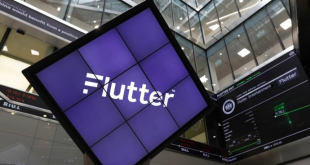
FSB Technology’s Business Development Director Richard Thorp reflects on 2014 and looks forward to another challenging year.
When it comes to the betting and gaming industry, I think it’s safe to say that we will look back on 2014 as both the best of times and the worst. It’s biggest event by far, for UK-facing operators and suppliers at least, was the introduction of point of consumption tax, which kicked in after a delayed start earlier this month.
Whilst it’s probably too early to predict how things will shake down in the end, I think it’s fair to assume the legislation will have ramifications far beyond the Government’s desire to level the playing field between UK-based gambling operators and offshore operators.
It is undoubtedly going to hit some companies hard. This will have worrying implications for the large number of people employed in Britain’s gambling industry.
But it may also benefit others who are sufficiently insulated to weather the storm. Either way, further consolidation is more than likely to be on the cards.
If 2014 was a year of mega-mergers, its successor may prove that what we’ve seen in recent months was just the tip of the iceberg.
Despite this challenging landscape, new sportsbook operators have emerged in the last 12 months in an attempt to establish themselves in the world’s oldest and longest-established market.
Some will challenge the big names and put down strong roots with a well-marketed and convincing offering. But I fear for others, whose product looks inadequate at best and not fit for purpose at worst.
Customers in the UK, be they online or in-shop, remain wedded to football and horseracing. While most operators have a good grasp of the former, there is much to be done at many when it comes to the latter.
Some would be better-served improving this product in particular, rather than concentrating on an arms race of in-play markets on obscure sports that won’t make a penny. For those with less of an interest in the UK, there have been interesting developments elsewhere.
The rapid expansion of Australia as a sports betting market has led to a number of sportsbooks committing significant funds in an attempt to grab a piece of the pie. Spain and Holland also promise much in the old world.
Yet the slow progress of events in the United States would suggest that we’re going to have to wait some time for the country to become the Promised Land many have predicted.
As well as new markets, we have seen a number of new operators from non-traditional backgrounds throw their hat into the ring in 2014.
The launch of the Playtech-powered Gazetta Dello Sport’s GazzaBet in September mirrored a similar deal we struck with the Guardian in the UK.
Rather than delivering readers on a plate to bookies, these newspapers now have sports betting products of their own. As a result, they are no longer reliant on shrinking advertising revenue generated from sending loyal followers away from their sites.
For suppliers like ourselves, who are also talking to land-based and online operators in other sectors of the industry such as casinos, these deals herald interesting possibilities elsewhere.
But they are yet another challenge to traditional sportsbooks, and particularly those saddled to legacy platforms and software that prevent them from fully utilising CRM tools that are now standard issue in other retail environments.
Changing views on free bets, be it self-regulated or imposed from above, will also have an impact and change the conversation from acquisition to retention.
Those who use their data feeds and trading teams to interact with customers and tailor bets to individual requirements will be speaking the right language.
They may even be on the road to finally dealing with the adversarial relationship between punter and bookie that persists in every market.
A similar thawing of another cold war may come in the New Year if we turn again to horseracing in the UK. The appointment of former Coral and Ladbrokes executive Nick Rust at the British Horseracing Board, and with him a team boasting vast experience in the betting industry, was a real eye-opener.
If nothing else, it will make levy negotiations interesting, given the number of poachers finding themselves sitting in the gamekeeper’s hut for the first time.
In fact, with mergers on the horizon, new markets opening up, and a more even-handed system of taxation, maybe 2015 will be the year we didn’t beat but decided to join them.
___________________________________
Richard Thorp – FSB Technology – Business Development Director








